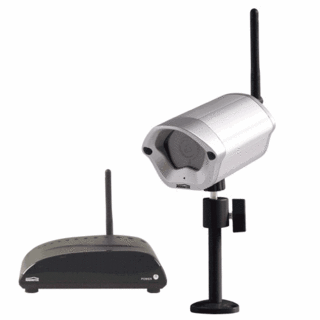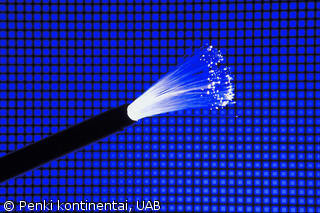Microsoft Says No Back Door In Windows.
Published:
6 September 1999 y., Monday
Microsoft Corp. sought to assure consumers and businesses yesterday that it did not insert a secret back door in its popular Windows software to allow the U.S. government to snoop on their computers.The sensational charge of a quiet alliance between Microsoft and the U.S. National Security Agency came after a computer security consultant noticed software code labeled "NSA key" in the latest update to Windows NT, Microsoft_s operating system for businesses. Similar code, but without the label, is also present in earlier versions of NT, in the upcoming Windows 2000, and in Windows 95 and 98, which run most of the world_s personal computers. The ``key' is part of the security software built into Windows. It_s used to check the authenticity of other software attempting to modify or add to the Windows security structure. If the National Security Agency had a special key, it theoretically could create software masquerading as additional security that would in fact make it easier for an outsider to gain access to any Windows computer. Once such software was installed on a PC, according to this scenario, the agency might be able to monitor activity and read files on it, even files the user believed to be securely scrambled. Microsoft forcefully denied that it gave any government agency such a key and explained that it called its function an "NSA key" because that federal agency reviews technical details for the export of powerful data-scrambling software."These are just used to ensure that we_re compliant with U.S. export regulations," said Scott Culp, Microsoft_s security manager for its Windows NT Server software. "We have not shared the private keys. We do not share our keys." The NSA label was discovered by Andrew Fernandes, chief scientist of Cryptonym, a small Canadian computer-security consulting company. After Fernandes posted his allegations on Cryptonym_s Web site, they spread quickly in e-mail and discussion groups across the Internet, especially in those corners of cyberspace where Microsoft and the federal government are often criticized.
Šaltinis:
Microsoft
Copying, publishing, announcing any information from the News.lt portal without written permission of News.lt editorial office is prohibited.
The most popular articles
Software company announced new structure_ of it_s business.
more »
 Just a few weeks ago, the world's tiniest video camera was as small as a grain of rice. Today, the world's NanoEst camera is even smaller.
more »
Just a few weeks ago, the world's tiniest video camera was as small as a grain of rice. Today, the world's NanoEst camera is even smaller.
more »
 During the experiment two research groups managed to overcome a symbolic 100 TB/s optical fiber data transmission speed limit.
more »
During the experiment two research groups managed to overcome a symbolic 100 TB/s optical fiber data transmission speed limit.
more »
 Apple’s long–awaited online storage service for iTunes could be named iCloud, if only rumours are to be believed.
more »
Apple’s long–awaited online storage service for iTunes could be named iCloud, if only rumours are to be believed.
more »
 The founders of video-sharing site YouTube have bought bookmarking service Delicious from Yahoo.
more »
The founders of video-sharing site YouTube have bought bookmarking service Delicious from Yahoo.
more »
 The successful raid by hackers on Sony’s PlayStation Network is already being ranked among the biggest data thefts of all time.
more »
The successful raid by hackers on Sony’s PlayStation Network is already being ranked among the biggest data thefts of all time.
more »
 Apple has denied that its iPhones and 3G iPads have been secretly recording their owners' movements.
more »
Apple has denied that its iPhones and 3G iPads have been secretly recording their owners' movements.
more »
 Customers who have waited nearly 10 months for the white version of the iPhone 4 won’t have to wait much longer. The Great White iPhone 4 is finally here.
more »
Customers who have waited nearly 10 months for the white version of the iPhone 4 won’t have to wait much longer. The Great White iPhone 4 is finally here.
more »
 Researchers at Georgia Tech University are teaching a robot the basics of dialogue. Named "Simon", the robot has already been taught how to attract a person's attention but eventually, it's hoped he'll be able to interact and converse with humans in daily life.
more »
Researchers at Georgia Tech University are teaching a robot the basics of dialogue. Named "Simon", the robot has already been taught how to attract a person's attention but eventually, it's hoped he'll be able to interact and converse with humans in daily life.
more »
 3D? Terribly lame when it's tossed into devices as a bullet point feature. Trimensional for iPhone takes a picture of your face and maps your mug in a 3D model.
more »
3D? Terribly lame when it's tossed into devices as a bullet point feature. Trimensional for iPhone takes a picture of your face and maps your mug in a 3D model.
more »
 The European Union is to investigate whether internet service providers (ISPs) are providing fair access to online services.
more »
The European Union is to investigate whether internet service providers (ISPs) are providing fair access to online services.
more »